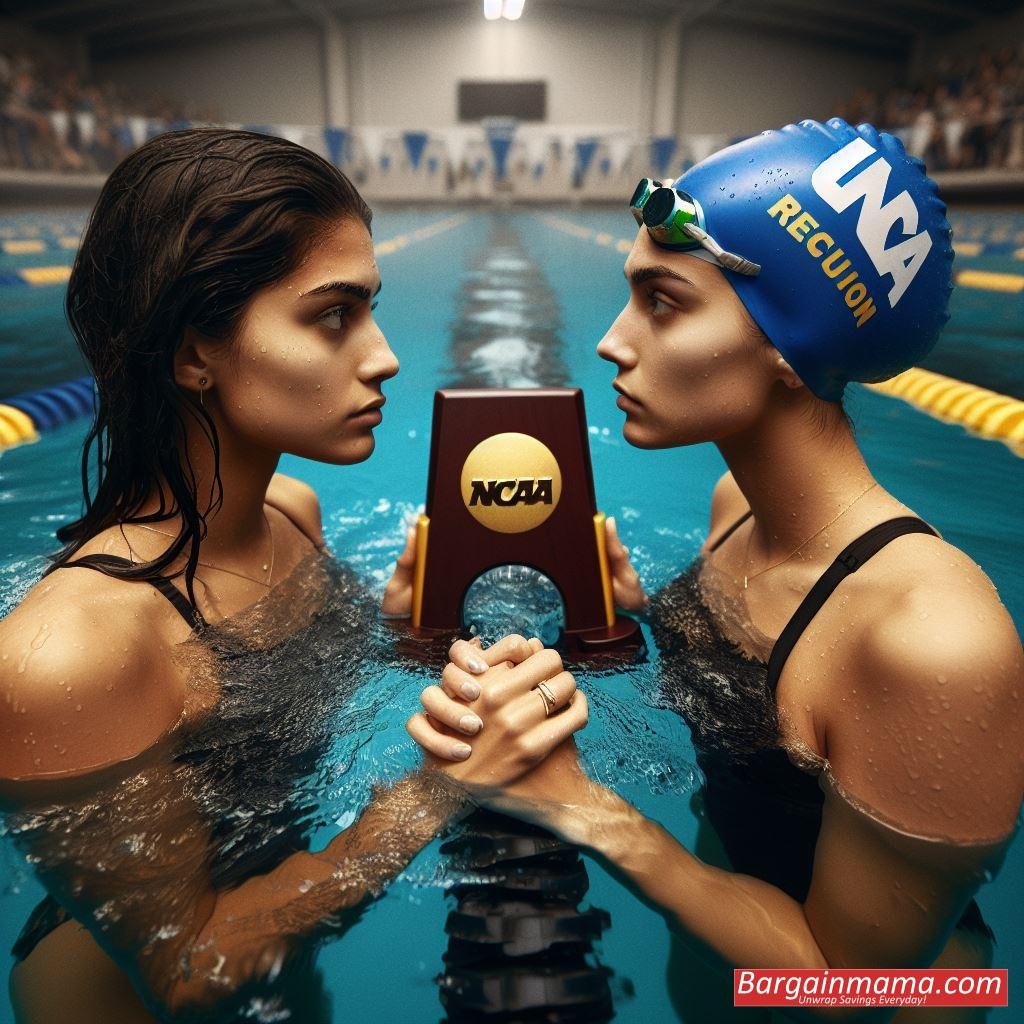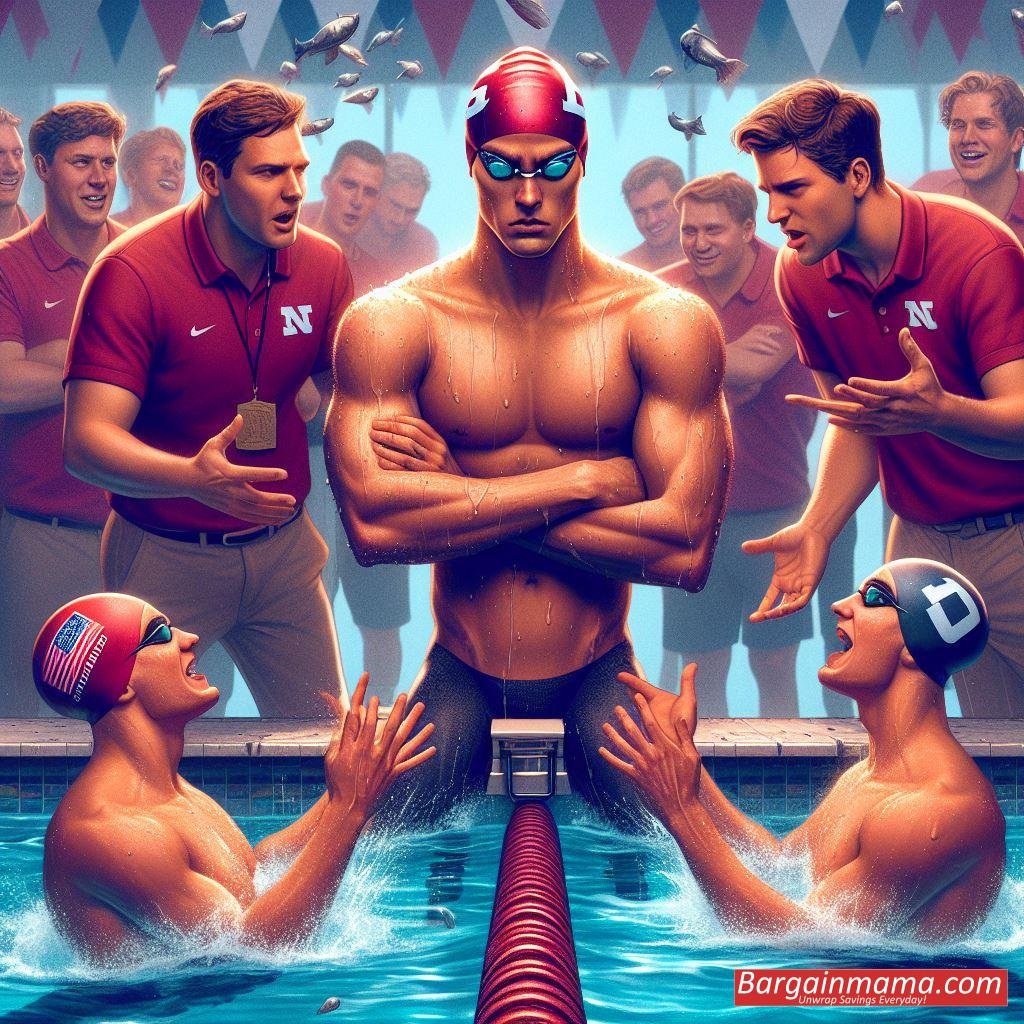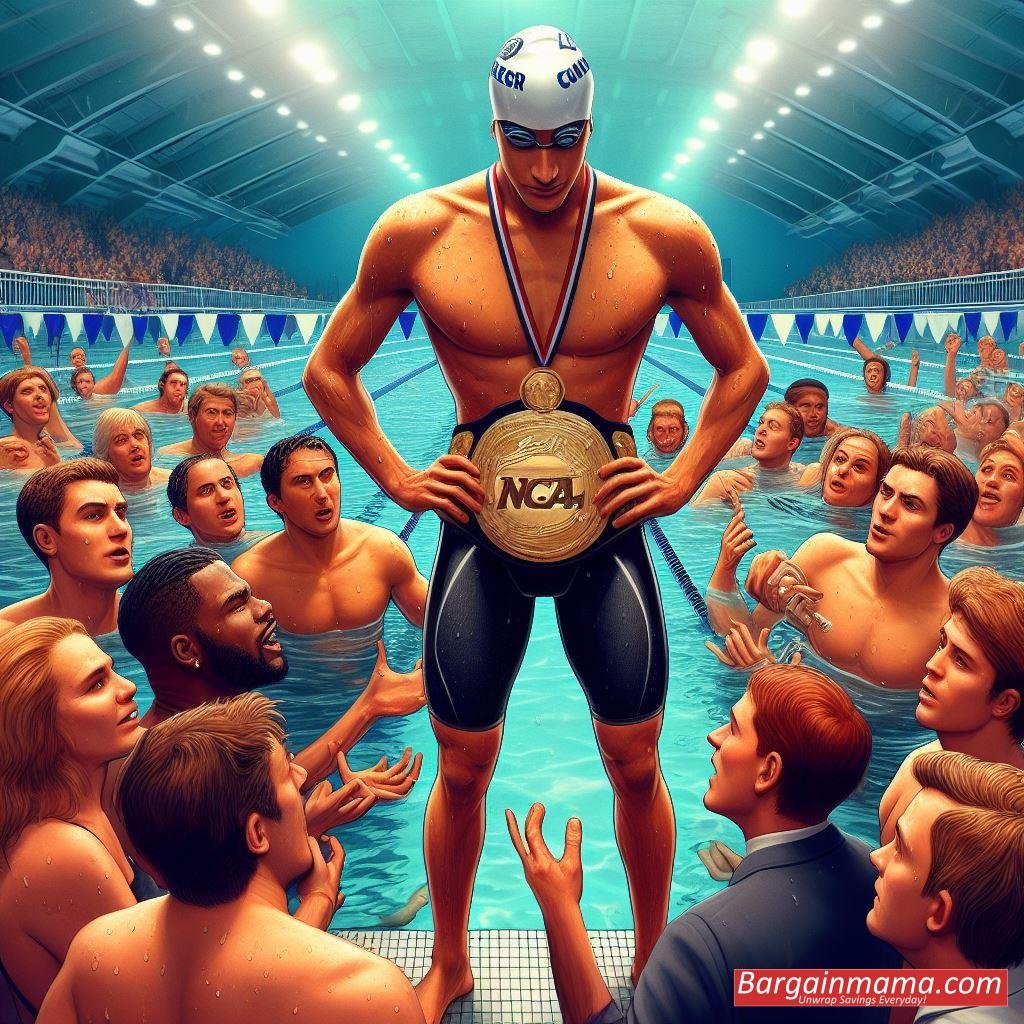A senior swimmer from North Carolina State University named Owen Lloyd was abruptly disqualified from the 1,650-yard freestyle championship at the Atlantic Coast Conference (ACC) Championships because of what some are referring to as “the dumbest rule in swimming.” The event, which happened at the end of February, has sparked a contentious discussion over the application of rules in competition swimming.

When Lloyd climbed into the neighboring lane to celebrate with his teammate Ross Dant, who had finished second, his victory celebration took an unexpected turn. Lloyd was disqualified, nonetheless, for this apparently benign behavior in accordance with NCAA Rule 2, Section 5, which forbids swimmers from switching lanes during a heat.
Dant, who was shocked by the outcome, called it illogical and emphasized that Lloyd had earned his triumph. He maintained that the regulation should only be in effect when a swimmer’s actions cause another competitor to be hindered in their race, which was not the case here.
Lloyd was clearly upset and crying at the pool, demonstrating the emotional toll that the disqualification had taken on him. Looking back on the episode, Lloyd was disappointed but clarified that he was just caught up in the thrill of winning and had not meant to offend any competitors.

Lloyd’s disqualification was not the end of the dispute. Lloyd later received the first-place medal from his teammate Dant in the stands as a show of support from the squad for their wrongly condemned colleague.
Many have questioned the impartiality and consistency of officiating in swimming competitions in the wake of the occurrence, which has drawn harsh criticism. Will Kunkel, a correspondent for Fox News, denounced the ruling as absurd and demanded greater latitude in applying regulations. In a similar vein, race color commentator Amy Van Dyken-Rouen, a former Olympic swimmer, expressed concerns about selective enforcement of the rules by pointing out instances in which other breaches went unpunished.
The swimming world is still dealing with the aftermath of Lloyd’s disqualification, while all eyes are on the 2024 NCAA Division 1 finals, which will be held at Indianapolis’ IU Natatorium. As swimming restrictions get more attention, officials are under increasing pressure to make sure that the laws are enforced fairly and consistently.

The disqualification of Owen Lloyd has sparked criticism about the regulations that apply to competitive swimming. The episode has highlighted apparent shortcomings in the present regulatory system, but it has also shown how crucial it is to preserve integrity and fairness in the sport. The swimming community is hoping that lessons will be learned and steps done to avoid such problems in the future as it looks ahead to upcoming tournaments.



